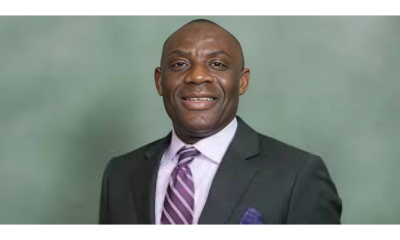NEWS
National Grid Collapse: Anambra, Enugu Govts seek Alternative Power Supply

Some state governments in the South East have embarked on ways to get alternative source of electricity supply following the incessant collapse of the national grid.
The national grid has collapsed no fewer than seven times between January and October, 2024, a situation worrisome to electricity consumers and the nation at large.
Survey on the development showed that customers have continued to groan over constant grid collapse and epileptic power supply in spite of paying higher for electricity services.
Most of the customers within Anambra, Ebonyi and Enugu States, who have been “systematically” moved to Band-A without their consent, are pushing for the reverse to the former band as they complain “not getting value for money”.
An Enugu-based small scale industrialist, Mr Chimezie Nwafor, said that within the past one month it had been difficult to run his factory at maximum capacity as most of his machinery required voltage of power directly from electricity.
Nwafor noted that he welcomed the 24-hour uninterrupted power, simply called Band-A, but “it is now a regret that the Electricity Distribution Companies (DisCos) and the Federal Government regulatory body failed to live up to what they assured”.
“The Federal and state governments should put efforts to make constant electricity power supply possible. It is doable and other countries of the world even within African countries have attained this height.
“Every industrialist wants value for money and we cannot get that if we pay so high a tariff and get disappointed,” he said.
A resident within Uwani area, Mr Chuks Ani, whose area have been placed on Band-A recently, noted that government always implement noble policies in the wrong way.
“As discussed in various electricity stakeholders and Town Hall meetings for years now, a 24-hour uninterrupted power supply should be provided for industrial and commercial concerns or areas and not the other way round to residential areas.
“As it stand, one wonders whether government genuinely want to check poverty as well as solve energy crisis in homes and rural communities with clear cut policies beneficial to all.
“The current policy and target of putting financially struggling families and households to Band-A and its attendant high tariff is suffocating,” Ani said.
On its part, Dr. Ernest Mupwaya, Acting Managing Director of the Enugu Electricity Distribution Company (EEDC), said the company had deployed advanced ICT systems to constantly monitor its network; detecting upcoming and instant electrical faults within its franchise area.
“Over some years now, we have strengthened all our lines and tightened all loose ends as well as clear obstructions to our lines within our franchise area leading to stable and better supply,” he said.
He noted that with clear knowledge of the industry moving towards 24-hour uninterrupted supply, the company had successfully converted aluminum transformers to copper-wound transformers using reverse engineering.
The acting managing director said that reverse engineering on transformers had stabilized supply and allowed transformers to stand prolonged workload each day.
“This groundbreaking innovation has the potential for significant cost savings (for both the company and its customers),” he added.
Having issued license to Mainpower Electricity Distribution Limited, the Chairman, Enugu State Electricity Regulatory Commission (EERC), Mr Chijioke Okonkwo, said that with the Enugu State Electrification Law 2023 and electrification master-plan, the state would be a hub for electricity generation and distribution.
It could be recalled that recently, the Nigerian Electricity Regulatory Commission, NERC, finally handed over regulatory power to the EERC.
With the development, Mainpower, a subsidiary of the EEDC, took over the electricity distribution operations in Enugu State after it was presented with an interim operating license to distribute electricity in Enugu State by EERC.
Okonkwo said that the issues of grid failure and epileptic supply would be a thing of the past as soon as the commission had developed a robust commercially viable, sustainable and reliable electricity market that served all the residents and industrial/commercial clusters.
He said that market feasibility had shown that Enugu State had the market viability not only to generate its electricity consumption, but the capacity to sell to other states and entities.
“What made the state lucrative for investment in the energy market is the high percentage of the underserved and unserved population that are in need of energy to run their businesses,” he said.
According to him, with investors playing in the electricity market in the state, the energy needs of the population would be solved while return-on-investment would be guaranteed since there exists willing buyers in the under-explored market.
In Anambra, Mr Julius Chukwuemeka, Commissioner for Power and Water Resources in Anambra, said that the state government was putting in place measures that would reduce its dependence on power from the national grid.
Chukwuemeka, who described the national grid source as “no longer sustainable” given its persistent failures, said legislative frameworks were on for a law to set up the Anambra Power Market and Anambra State Electricity Regulatory Commision.
He said both laws would help determine the energy demand of the state as well as prepare ground for electricity generation in the state.
The commissioner said the government was encouraging energy mix with emphasis on solar and renewable energy options.
“These options may be expensive at the point of installation but they have long term cost and reliability benefits.
“These energy mix options will take households and small businesses away from the national grid; and leave Industries and heavy equipment users on the hydro and therma powered national grid supply,” he said.
Meanwhile, residents of the state have expressed frustration over the incessant collapse of the national grid.
Mr Jude Anyene, an artisan, said the loss of power was putting additional cost on their businesses.
Anyene said there was no justification for the high and differential tariff charged by electricity distribution companies because every customer was in darkness.
“The solution to our electricity challenges is not charging exorbitant tariff or putting people in different bands just to make them pay more.
“We have power generation problem, there is not enough to go round and the infrastructure is decaying such that so much is lost in transmission,” he said.
Expressing the same frustration, Mr Caleb Agbo, an electricity stakeholder in Abakaliki, Ebonyi, stressed the need for constant discourse among electricity stakeholders to address the frequent collapse in the system.
Agbo called on major stakeholders and government to show more commitment in energy security in the country.
Mr Collins Odumba, another stakeholder, urged the Federal Government to overhual and review entire energy sector of the country and get investors that have the capacity to deliver and ensure constant power supply.
Mr Emmanuel Ogodo, an electricoty consumer living in Abakaliki, encouraged government to make prepaid meters available at a reduced cost.
“The cost of acquiring a three phase prepaid meter is between N150,000 and N200,000; while a single phase cost between N100,000 and N150,000,” Ogodo claimed.
Mr Kingsley Oko, a business owner, noted that activities of vandals and corrupt officials also contributed to the breakdown and constant collapse of the national grid.
“The power outage has continued to disrupt my business venture. If this trend continues, more businesses will crash,” Oko said. (NAN)
Education
FG vows full WAEC CBT shift by 2026 – Minister

The Minister of Education, Dr Tunji Alausa, has reaffirmed the Federal Government’s commitment to fully transitioning to Computer-Based Test (CBT) examinations for the West African Examinations Council (WAEC) and other exam bodies by 2026.
Dr Alausa made this known while monitoring the conduct of WAEC’s CBT examinations in Abuja on Wednesday.
He expressed optimism about Nigeria’s capacity to modernise its examination system and reduce widespread malpractice through digital innovation.
Commending WAEC’s initiative, the minister described the shift from traditional pen-and-paper exams to CBT as a historic and crucial step toward fairness and educational integrity.
“We are working very hard to eliminate fraud in our exam system, and WAEC is taking the lead,” he said.
Highlighting the advantages of CBT, Alausa noted that the system simplified the exam process while significantly curbing cheating.
“We now have clear evidence that when exams are done using technology, the level of fraud is minimised to almost zero,” he stated.
He further lauded WAEC’s internal safeguards, explaining that the CBT system was operated via a secured Local Area Network (LAN), making it “literally impossible” to hack.
According to the minister, by Nov. 2025, all WAEC multiple-choice exams will be conducted using CBT.
He added that essay questions and NECO examinations would follow suit by 2026.
On infrastructure and logistics, particularly in remote areas, Alausa acknowledged the challenges but assured that scalable solutions are in progress.
“Are we going to be ready to provide every single needed infrastructure by November? Absolutely not.
“But as we move into the future, we will be ready. We have to challenge ourselves as government,” he said.
He also addressed concerns over the logistics of conducting multiple exams.
“In WAEC, the average student takes about eight to nine papers.
“They do it over several days. Those are the logistics we, as administrators, have to work through, and we already are,” he explained.
The ongoing WAEC exams, which began on April 24, are scheduled to conclude on June 20, 2025.
A total of 1,973,253 candidates from 23,554 schools are participating. Of this number, 979,228 candidates are male, accounting for 49.63 per cent, while 994,025 candidates are female, making up 50.37 per cent.(NAN)
NEWS
Ex-NBA President Seeks Higher Minimum Entry Requirements into Police

A Former President of the Nigerian Bar Association (NBA), JB Daudu (SAN),has advocated for a higher minimum entry requirement for the Nigerian Police Force, suggesting a university degree or its equivalent.Daudu, who is the Coordinator of the Rule of Law Development Foundation made the call at the 13th Webinar series organized by the foundation on Tuesday in Abuja.
Report says that the webinar had the theme `Overview and Mid-Term Report of The Administration of President Bola Ahmed Tinubu (May2023-May 2025)’. He suggests that a more educated workforce would be better equipped to handle the challenges of policing, potentially leading to improved performance and effectiveness“This will ensure that all entry level officers receive a mandatory course in the recognition and enforcement of fundamental human rights that have been enshrined in the Nigerian Constitution (as amended).“It will also ensure that they receive sufficient training in the handling of firearms to curb the wave of accidental discharge of firearms and all other cases of abuse of firearms that our citizens now suffer from’’.“As far as many Nigerians are concerned, the police force is not only moribund, but a large percentage of its personnel are branded as corrupt.“Most Nigerians don’t report crimes in which they are victims because of the fear that they may, in the course of pursuing their rights, be branded as the criminals, or be exploited for financial gain.“The federal government must commence the rebranding of the Nigerian Police Force’’.He equally called for improvement in their remuneration package, the provision of institutional support such as insurance cover, mandatory housing program, promotions as and when due, affordable health services, and educational support.The Learned Silk stressed the need to rewrite the disciplinary protocols of all security agencies and ensure that these rules are subjected to ordinary laws of the land through trials in our criminal courts.“Offences by errant policemen amounting not only to civil disciplinary issues but are also criminal in nature, must attract punishments that fit the offence.“Such offences as reckless misuse of firearms and police power leading to death or serious bodily harm of, and on, innocent victims must be appropriately punished rather than a mere slap on the wrist”.He added that serious and immediate thought must be given to the decentralisation of the Nigeria Police Force.“20 years ago, I championed the advocacy of an autonomous and independent state police completely severed from the umbilical cord of the federal police that is the Nigeria Police Force.“I cannot in good conscience state today that I can still support the creation of a blanket State Police left in the hands of the Governor of a State.“The reason for this shift in position is that the political maturity, and I say this with the utmost respect and humility, of our new set of leaders at the state level is not such as was in existence 25 years ago’’.He noted that creating state police at this point in time is to encourage flashpoints in different parts of the country some of which may escalate into ‘civil wars’.“I shudder to think of what would have happened if certain states which were recently plunged into political crisis had recourse to their police units during the political crisis that recently plagued their states.“For now and until the political actors improve in their political maturity, the alternative would be and should be ‘community police’.“I propose most respectfully a measure where every ward in a local government would have an office of the community police that will monitor and ensure the reportage of all crimes.“This should include the movement of all suspicious characters who may likely pose a threat to the peace and harmony of the community”.He added that where the threat is beyond the capability of the community, and escalates to the remaining wards and the Local government Headquarters, the State Police Command should step in.He said that all the funds being used to buy rice and other palliatives could be used to fund and equip security-watch offices in these locations as described above.“This means therefore that the local government council of every LGA must be made to be the centre point of the maintenance of law and order and the promotion of security in Nigeria.“Note that there is still the corruption factor and strict or severe punishment must be meted on local community police officers who corruptly abuse their power”. (NAN)NEWS
NYCN Demands Probe into DPO’s Killing

The Northern Youth Council of Nigeria (NYCN) has called for a thorough investigation into the killing of CSP Baba Ali, a Divisional Police Officer in Kano State. Report says that the Police Command in Kano confirmed the killing on Monday, along with the burning of the Rano police station.
The DPO was reportedly killed by angry youths in Rano town, Rano Local Government Area, sparking widespread condemnation and concern across the country. In a statement issued on Tuesday in Kaduna, NYCN National President, Isah Abubakar, expressed sorrow and described the incident as a grave national loss. “CSP Baba Ali served with dedication and integrity. His commitment to peace and security must be recognised and remembered,” Abubakar stated. Abubakar urged the Federal Government to launch an impartial investigation, calling for cooperation among relevant agencies to reveal the circumstances of the officer’s death. He emphasised that the investigation must be transparent, keeping the victim’s family and the public informed at every stage. The NYCN president also demanded justice not only for CSP Baba Ali but for all Nigerians striving for safety and security. He called on the government to adopt measures that strengthen security forces and ensure better protection for officers on duty. “The death of CSP Baba Ali underscores the urgent need for united efforts against violence. Government must act decisively to prevent similar tragedies,” he added. (NAN)

















